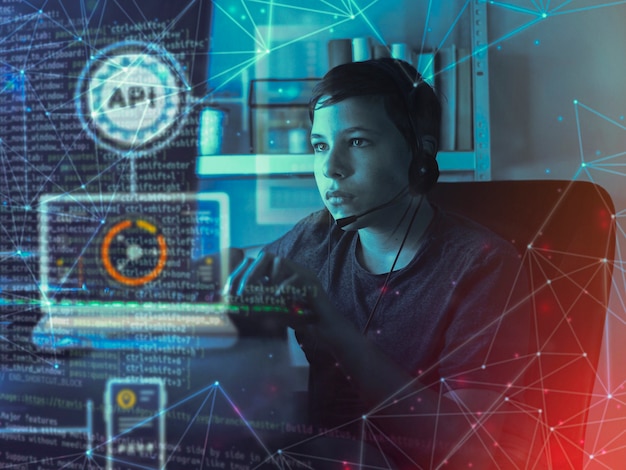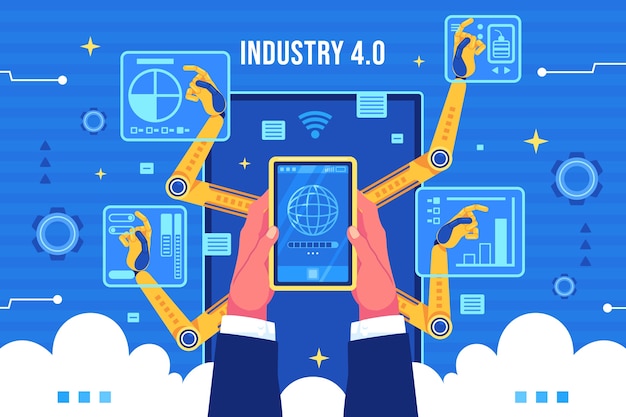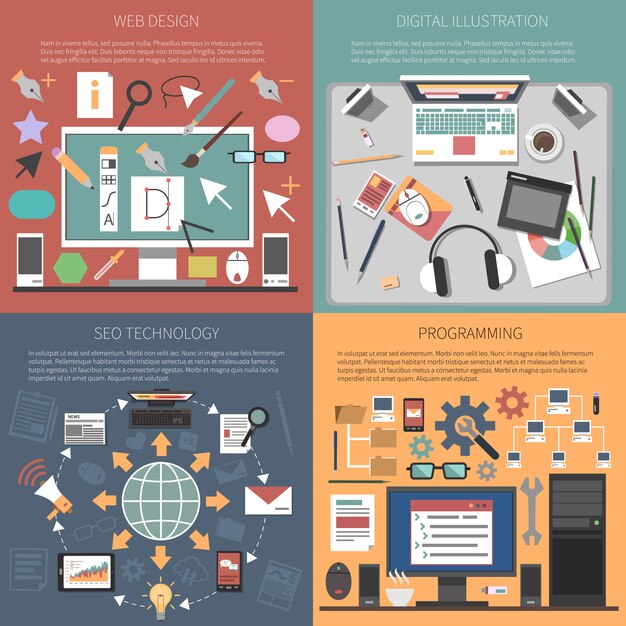In recent years, artificial intelligence (AI) has made significant strides in various industries, and web development is no exception. AI has transformed the way websites are designed, developed, and maintained, making the process more efficient, cost-effective, and user-friendly. As technology advances, the role of AI in web development continues to expand, offering numerous benefits and opportunities for developers, businesses, and end-users alike.
1. AI in Website Design
One of the primary ways AI is revolutionizing web development is through automated website design. AI-powered tools like Wix ADI, Bookmark AiDA, and The Grid utilize machine learning algorithms to create visually appealing and responsive web designs. These tools analyze user preferences, industry trends, and design best practices to generate professional websites with minimal human intervention.
Additionally, AI can optimize user interfaces (UI) and user experiences (UX) by analyzing visitor behavior, providing insights into navigation patterns, and suggesting design improvements. AI-driven A/B testing can also help developers refine website layouts and elements for better engagement and conversion rates.
2. AI for Personalized User Experiences
AI plays a crucial role in delivering personalized user experiences. By leveraging data analytics and machine learning, AI can analyze user behavior, preferences, and demographics to customize content, product recommendations, and marketing strategies.
For example, AI-driven recommendation engines, such as those used by Amazon and Netflix, analyze user interactions to suggest relevant products or content. Chatbots powered by AI can also enhance user engagement by providing instant customer support, answering frequently asked questions, and guiding visitors through a website.
3. AI in Web Development Automation
AI has significantly streamlined the development process by automating repetitive and time-consuming tasks. AI-powered coding assistants, such as GitHub Copilot and OpenAI Codex, can help developers write code, detect errors, and suggest optimizations, reducing the overall development time and effort.
Moreover, AI-driven tools can automate content generation, image optimization, and SEO strategies, ensuring that websites remain relevant and rank higher on search engines. This automation allows developers to focus on more complex and creative aspects of web development.
4. AI for Cybersecurity and Performance Optimization
Security is a major concern in web development, and AI has proven to be an effective tool for identifying and mitigating cyber threats. AI-powered security systems can detect unusual activity, prevent data breaches, and analyze potential vulnerabilities in real time. AI-driven security tools, such as Darktrace and Google’s Safe Browsing, help safeguard websites from cyberattacks by continuously monitoring for suspicious behavior.
Additionally, AI can enhance website performance by optimizing loading times, compressing images, and managing server resources. AI-powered content delivery networks (CDNs) analyze traffic patterns and distribute content efficiently, ensuring a seamless browsing experience for users worldwide.
5. AI and Voice Search Optimization
With the rise of voice-activated devices like Amazon Alexa, Google Assistant, and Apple’s Siri, optimizing websites for voice search has become essential. AI-driven natural language processing (NLP) allows websites to understand and respond to voice queries more effectively. This has led to the development of conversational interfaces, AI chatbots, and voice search-friendly content, enhancing accessibility and usability.
6. The Future of AI in Web Development
As AI continues to evolve, its impact on web development will become even more profound. Future advancements in AI-driven automation, deep learning, and augmented reality (AR) integration will further enhance the capabilities of web development tools. AI is expected to improve predictive analytics, allowing businesses to anticipate user needs and provide even more personalized experiences.
Furthermore, AI will play a significant role in creating more inclusive and accessible web experiences. By leveraging AI for automatic translations, text-to-speech functionalities, and adaptive interfaces, web developers can ensure that websites cater to a diverse global audience.
Conclusion
AI has undeniably transformed web development, making it more efficient, intelligent, and user-centric. From automated design and development to enhanced security and personalized experiences, AI-driven solutions are revolutionizing how websites are created and managed. As AI technology advances, its role in web development will only continue to grow, shaping the future of digital experiences for businesses and users alike.




